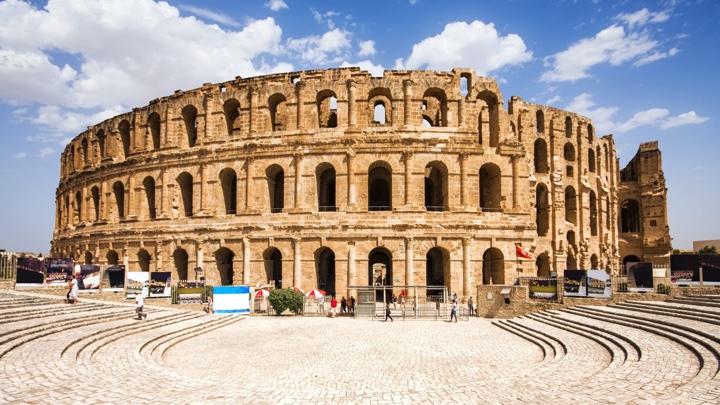
I asked Maestro Will Crutchfield about these two contrasting works and their unique strengths and challenges:
Donizetti’s Poliuto is a work that had a rocky start. Composed for the Teatro San Carlo in Naples in 1838, the work was rehearsed but was canceled by the censors before the premiere because the libretto (based on a tragedy by Pierre Corneille) dealt with the life and death of a Christian saint and was thus deemed blasphemous. It was only performed in the original Italian Naples version in 1848, after the composer’s death. It is said that Donizetti wrote it with an eye towards recasting it as a French Grand Opéra à la Meyerbeer for Paris. Donizetti refashioned and translated Poliuto into an 1840 French grand opéra called Les Martyrs but the tauter three-act Italian version survived in the repertory.
Will Crutchfield: Donizetti was a true pioneer. He came of age when the “code Rossini” was the exciting new thing in Italian opera, and he imitated it like every other composer of his generation. But he was the one who succeeded in transforming it from within — not by rebelling against Rossinian style, but by seeing new ways to tighten it here and loosen it there, so that his different musical personality could find full expression. One reason this is so important is that he created real masterpieces in the process. The other reason is that he was able to bequeath it to the next genius: Giuseppe Verdi started out by imitating Donizetti just as closely as Donizetti had imitated Rossini twenty years earlier.
Poliuto comes at the point in this process when Donizetti was consolidating his mature style: concise, fast-moving, and harmonically adventurous. French opera influenced him, as it had influenced Rossini before and would influence Verdi later, but Poliuto is not really an example of that. It is an example of the way he tightened and slenderized the Rossinian forms so that they could move faster with the drama. This opened up more space, so to speak, and French opera then showed him some ways to fill that space. The Parisian remake of Poliuto as Les martyrs is a much longer opera. But I would call Poliuto a pure Italian work. It points more towards Ernani than towards the expansive French scores of either composer.
Discuss the influence of French Grand Opéra on Donizetti and his Italian contemporaries like Verdi. Did their works change after their exposure to Paris and the Opéra?
Yes, they did, but I think the previous answer steers us away from this. French opera offered more advanced orchestration, a greater variety of formal construction, and the possibility of scenes of a type that weren’t in the standard Italian catalog – and all this was great, but along with it came the danger of bloat, unwieldy length, or interruption of momentum. In Poliuto the momentum never stops.
What edition of the score are you using?
We are doing the complete and unaltered original 1838 Naples version with just one exception: we play the overture that was added for Paris. This was done also in 1848 in Naples when Poliuto finally had its premiere.
What is unique about Poliuto?
One striking thing about Poliuto is its dramatization of the idea of Christian faith as a solace for truly hopeless human situations. We don’t have much reason to think Donizetti felt this in his own life, but it says a lot about him as a dramatist that he was able to grasp it and “believe” it along with the characters for whom it was real. The main couple, Poliuto and Paolina, are not the usual operatic lovers. Paolina loved someone else and was basically tricked into accepting their marriage. Poliuto is consumed by doubt and jealousy. They find true connection only through their mutual embrace of faith, even at the price of death — and this is very sad, but it is also real, and Donizetti is able to make that reality glow in the music.
The Neapolitan brothers Federico and Luigi Ricci composed the opera buffa Crispino e la Comare for Venice in 1850. In this comic gem a mischievous fairy offers a penniless cobbler a Faustian bargain. It was a staple of the operatic repertory until World War I, then it disappeared. For most of us, Italian opera buffa seems to end with Don Pasquale and begin again with Verdi’s Falstaff, then peters out after that. Yet, the brothers Ricci were very famous and their works very popular in Italy and beyond in the 19th and early 20th centuries. Tell us about this work and how the Riccis compare with Rossini and Donizetti and even Verdi.
Verdi himself, who was a severe judge, left one comment on Crispino. He was criticizing other composers for relying on shallow orchestral tricks, and he said that in this opera the Riccis instead “proceeded with good themes.” From Italy’s greatest creator of “good themes,” that is notable praise. “Crispino” is a spontaneous, delightful score with a funny and edgy plot. It was a repertory staple for over half a century. It faded when “opera buffa” went out of style – but the world that has rediscovered comedies like La cenerentola and The Daughter of the Regiment should welcome it back.
Most of opera fans only know this work from coloratura sopranos like Luisa Tetrazzini and Joan Sutherland recording the sparkling waltz aria “Io son l’Annetta”. What other gems are in the score?
The soprano has two other waltz songs that are also gems, but the best piece of all is probably the hilarious patter trio for Crispino and the two doctors he is putting out of business. It was encored almost everywhere back in the day, and I can see why
Tell us about opera buffa style and how you coach it to young American singers.
It is harder than you might think. Most of these operas center around a fast-talking funny guy (Crispino himself in this case), and honestly I don’t know how anyone can interpret those particular roles at a high level without being an Italian or knowing the language so well you can speak it like a native. If you try to imagine a Russian nailing the patter songs of Gilbert and Sullivan you’ll know what I mean. We have a young bass-baritone from Brescia who is destined for a great career in this repertory. But around the basso buffo there are all the other characters, and they are more typical of “bel canto” opera in general, and more available to foreigners who are willing to immerse themselves in Italian language and poetry. The big mistake most opera companies and training programs make is the assumption that it is enough to learn to pronounce the language. That’s not right. You have to speak it, or at the very least be in a serious process of learning to speak it. We make sure that happens at Teatro Nuovo.
Poliuto will be performed on July 19 and Crispino e la Comare on July 20 at the Rose Theater at Jazz at Lincoln Center. More information and tickets are available here, here and here.


